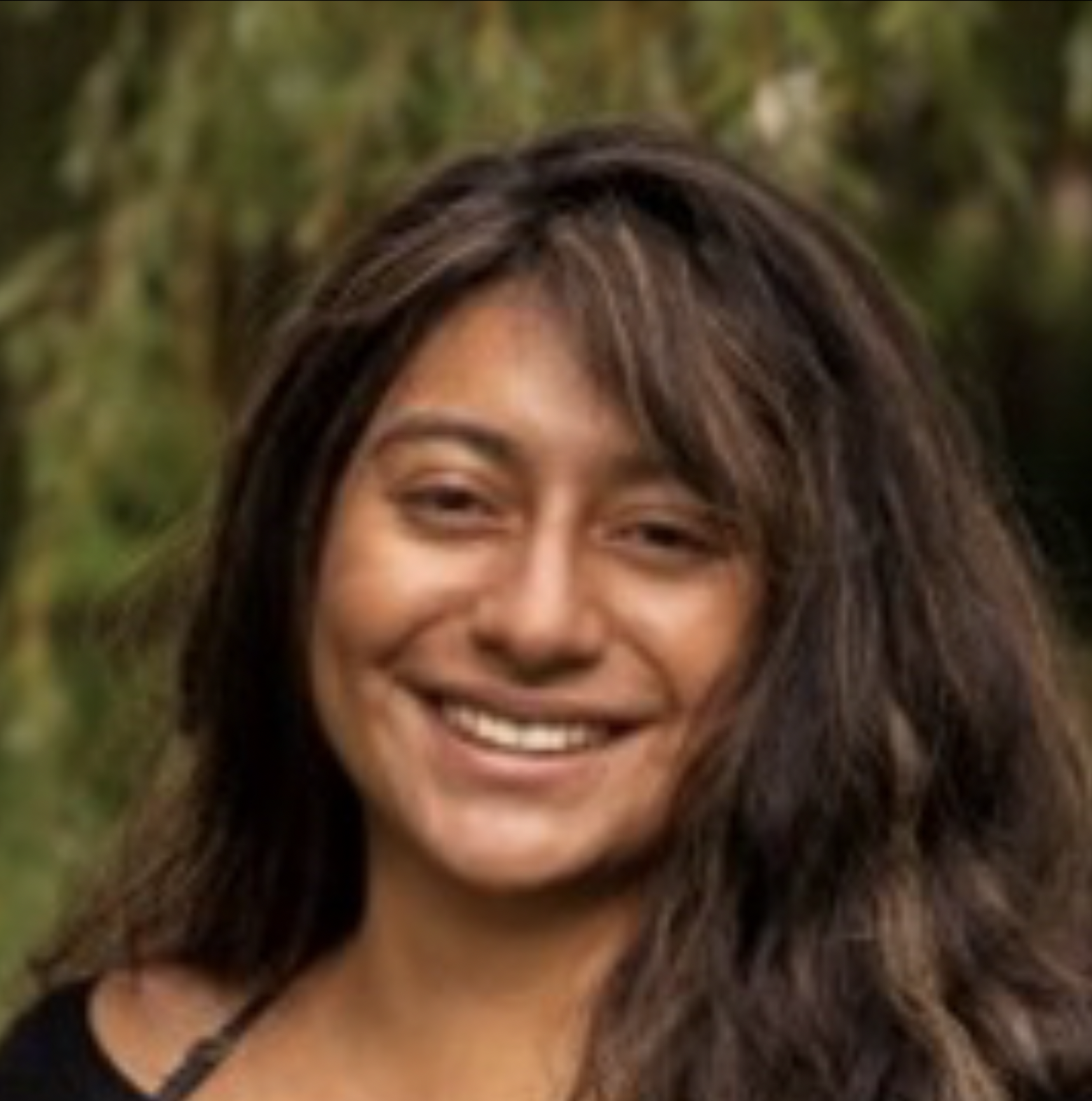Mackita Clara Esperanza Allison
Pronouns: she/her
Organisations: Previously The Ripple Effect Education and IPPNWC (International Physicians for the Prevention of Nuclear War Canada) and present Axis Family Mediation Inc.
Country of Origin: Guatemala
Profile
Mackita Clara Esperanza Allison is a peacebuilder who was adopted from Guatemala by a Canadian family. She said that school never quite resonated with her – the subjects felt distant and unrelatable – but her thought-provoking conversations with her father led to her early fascination with peacebuilding. Learning about his time in Afghanistan as a peacekeeper ignited a passion that led her to begin her own journey in peace studies, starting with a Peace and Conflict course in Toronto. She worked for The Ripple Effect Education (TREE), an organisation that encourages teaching mediation and conflict resolution to young children. Mackita said she believes educating youth about conflict gives them the tools for better decision-making abilities as adults. In return, she said, ‘As much as I taught the kids, they taught me just as much. There was never a dull moment, and we teachers learned a great deal from them.’ Mackita said her early success in peacebuilding is driven by strong family support, but above all, by her ambition and passion for the work. For Mackita, ‘you can make anything peacebuilding, because it’s a lifestyle (...) Peacebuilding definitely gives me purpose.’
Story
In 2009, Mackita Clara Esperanza Allison’s father was sent to Afghanistan as a peacekeeper. It had never occurred to her that sending troops was a solution to bringing about peace. This sparked Mackita’s aspiration to study conflict and motivated her ‘to look for other ways to produce peace.’ Mackita said that although she felt unsure about how to resolve major conflicts, she remains ambitious to make a difference at any scale. ‘I have to look at the resources and see if I can make an impact on even just one person a day or two people a week. And that’s okay for me. (...) I’m not here to save the world.’
After studying Peace and Conflict in Toronto, Mackita started her peace career by joining KAIROS, an ecumenical organisation uniting churches to advocate for ecological justice, human rights and social change. There, she led a decolonisation workshop and helped out with the KAIROS Blanket Exercise Circles. This programme uses an interactive approach to teach Canadian history. She said, ‘They would lay blankets on the ground to represent Canada, or Turtle Island, before European settlers came. Then they would take those blankets away to represent how settlers eventually erased the Indigenous culture.’ She shares her pride in having been a part of moments where she witnessed ‘people actually changing perspective in real time because of that information.’
Mackita also worked for The Ripple Effect Education (TREE), which teaches children from kindergarten to high school about conflicts and mediation. She believes giving agency and responsibilities to youth is paramount for their confidence in future decision-making. That way, she said, ‘they don’t just have to rely on parents and teachers and anyone else that’s older than them – they can take that responsibility.’
Mackita said that while she builds on her experience in NGOs, she struggles to find an economically stable job. Nonetheless, she pursues this career because she is very motivated ‘by the reward of, “hey, I actually impacted this person’s life”’. Mackita said she also faces mental health issues but has learned how to deal with them through techniques such as breathing exercises or interfering with negative thoughts to avoid them taking up too much space in her mind. Mackita describes her father as ‘very soldier-like’ and credits him with teaching her not to devalue her struggles, but instead to acknowledge them, trust her ability to handle them and keep moving forward. She advises future peacebuilders to recognise that conflict exists everywhere – whether in NGOs, peacebuilding organisations or within families. However, she emphasises that it is not necessary to resolve every conflict. Some situations, especially those involving family, can be too ‘close to you’ to take on as a peacebuilder.
Published in 2025

